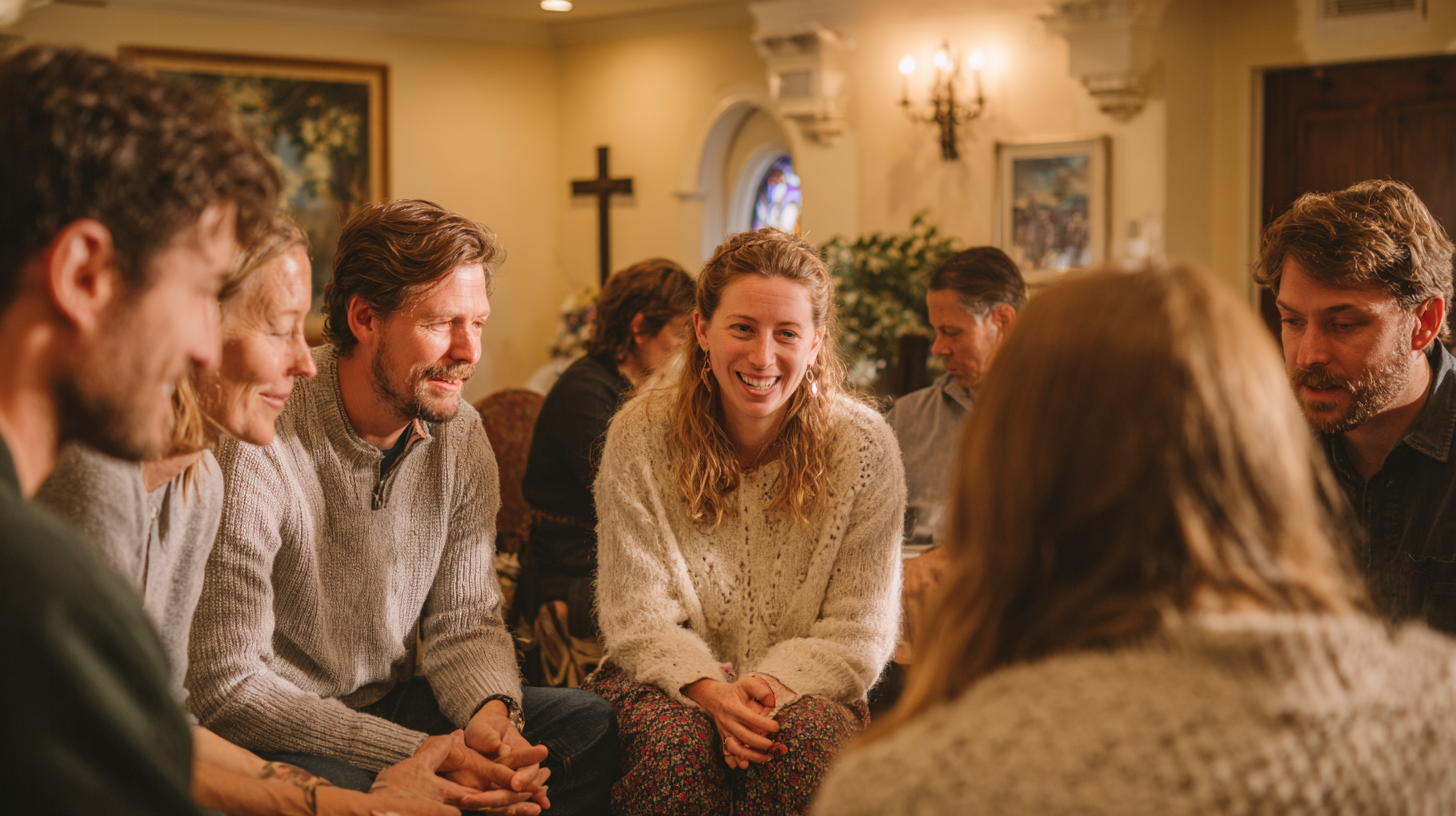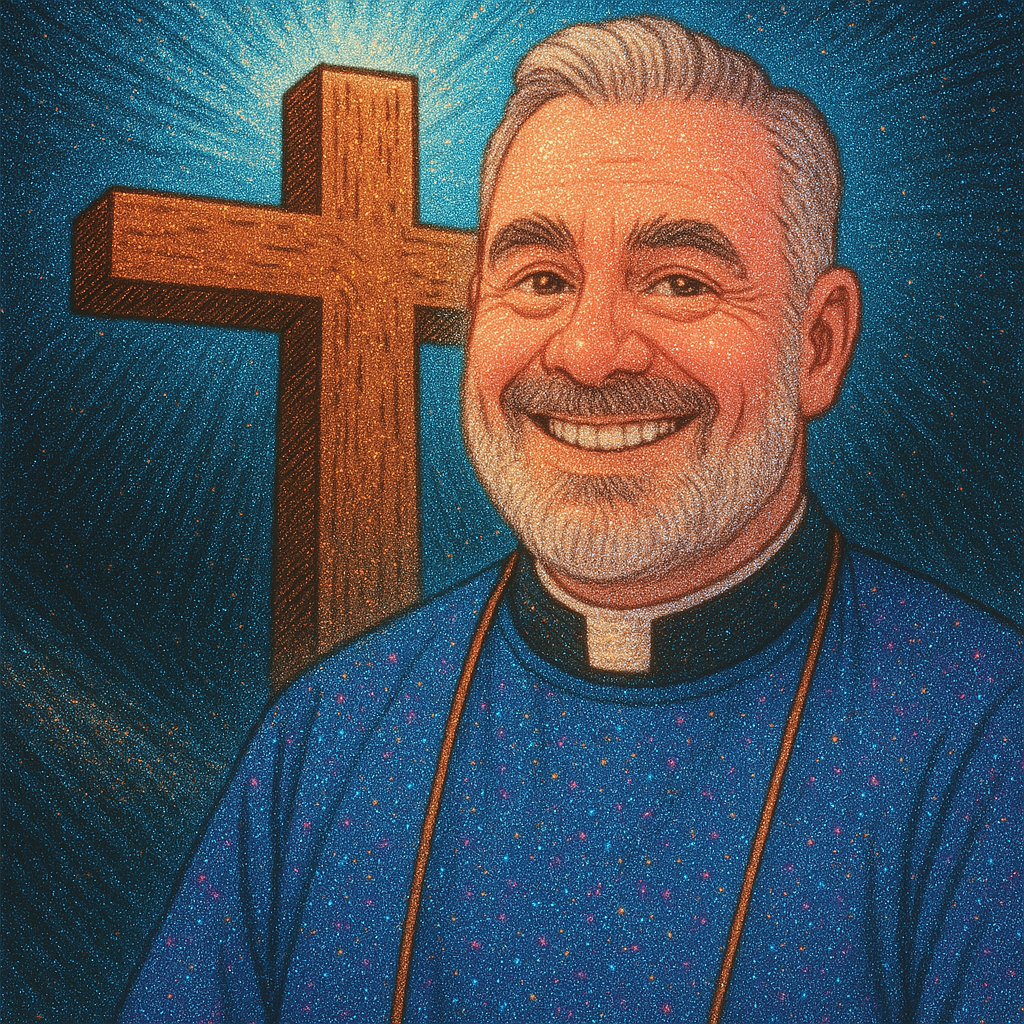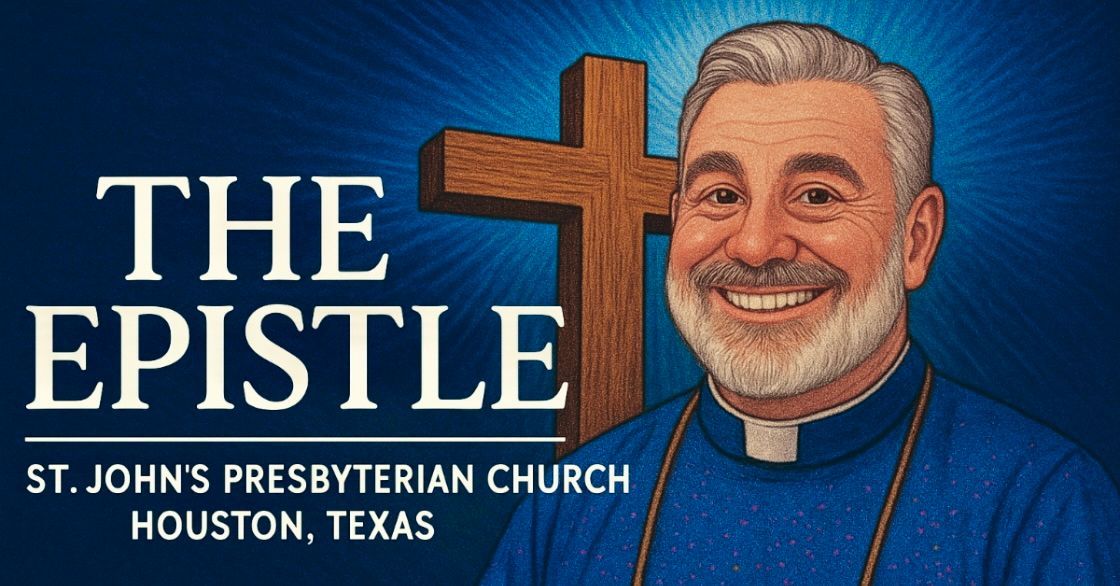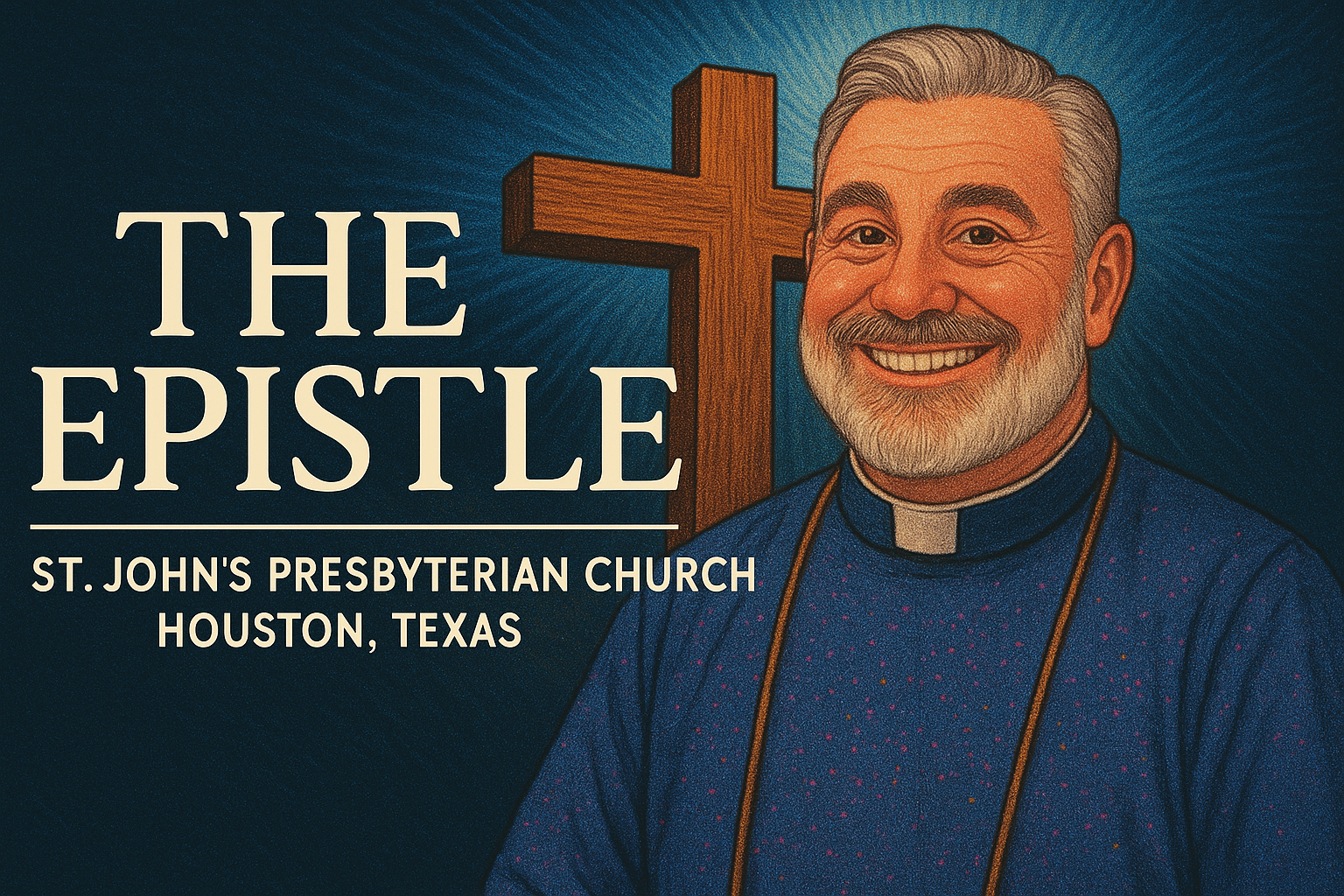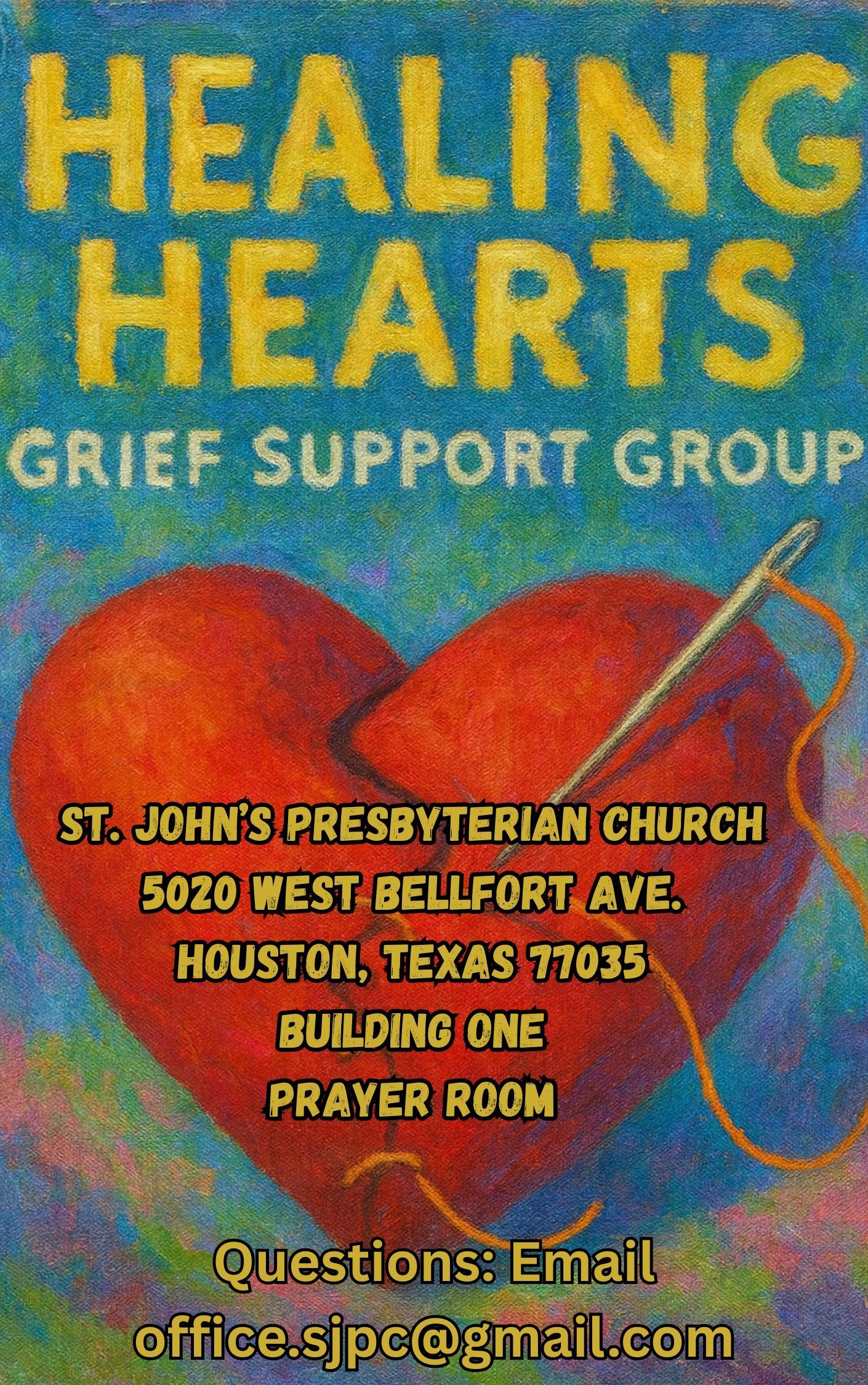Community Church Houston: How St. John's Builds Real Relationships
When you search "community church Houston," you're looking for more than just a place to attend on Sundays. You're searching for belonging. For people who will know your name and your story. For relationships that go deeper than polite small talk in the parking lot.
The word "community" gets thrown around a lot in Houston churches. Every church website claims to offer authentic community, genuine fellowship, and real relationships. But if you've visited a few churches, you've probably noticed something. The reality rarely matches the marketing.
You show up. People smile and shake your hand. Someone gives you a welcome packet. Maybe you exchange names with the person sitting next to you. Then everyone files out to their cars, and you realize you could attend for years without anyone actually knowing you.
I'm Pastor Jon at St. John's Presbyterian Church, and I've watched people search for real community in Houston for decades. I've seen them bounce from church to church, always hoping the next one will finally feel like home. I've talked with adults who've attended the same large church for ten years but can't name five people who know their struggles, their joys, their actual lives.
Here's what I've learned: community doesn't happen by accident. It requires intentional practices, consistent presence, and structures that actually support relationship building rather than just claiming to value it.
Let me show you what real community looks like and how St. John's Presbyterian builds relationships that actually matter.
What Real Community Actually Requires
Start by being honest about what community demands from you.
Real community requires showing up consistently. You can't build relationships by attending once a month when you feel like it. Community grows through repeated presence, through seeing the same people week after week until their lives become woven into yours.
Real community requires vulnerability. You have to let people see you, really see you. Not just the put-together version you show the world, but the version that's struggling, doubting, failing, hurting. That's scary. It's much easier to keep everything surface-level and safe.
Real community requires commitment. When someone in your church community faces crisis, real community means you show up. You bring meals. You sit with them through grief. You help with practical needs. You don't just say "I'll pray for you" and forget about it by Tuesday.
Real community requires patience. Relationships take time to develop. You won't walk in the door and immediately have deep friendships. You've got to invest months, sometimes years, of consistent presence before real community solidifies.
Real community requires grace. Because when you actually know people, you discover they're flawed. They'll disappoint you. They'll say something insensitive. They'll forget to follow up on something important. Real community means extending grace and receiving it, over and over again.
Most Houston churches don't tell you any of this. They promise instant community, like you can just show up and immediately belong. But that's not how human relationships work. Community is something you build together over time through shared worship, shared service, and shared life.
Why Size Matters for Building Community
Houston has churches of every size. Megachurches with thousands of members. Mid-sized churches with a few hundred. Small congregations of fifty or fewer. Each size creates different possibilities and limitations for building real community.
In megachurches, programs replace relationships. You'll find excellent children's ministry, dynamic worship experiences, and groups for every possible interest. But you can attend for years without anyone knowing your name. Pastoral care becomes impossible at that scale. You're a face in the crowd, not a known member of the body.
Some people prefer that anonymity. If you want to show up, get your spiritual fix, and leave without being bothered, megachurches work fine. But if you're searching for real community, the structure itself works against you.
Very small churches know everyone, but they face different problems. Resources become scarce. You might not be able to afford a full-time pastor. Programming becomes nearly impossible. The same few people carry all the load, leading to burnout. Small churches also risk becoming ingrown, focused on survival rather than mission.
Mid-sized churches like St. John's offer a sweet spot. We're big enough to sustain real ministry. We can afford quality staff. We can offer Bible studies for different ages and interests. We can maintain mission partnerships both locally and globally.
But we're small enough that community happens naturally. In a congregation of 150 to 200 active members, you can actually learn names and stories. When someone's absent, you notice. When someone's struggling, you hear about it. When someone has gifts to offer, those gifts become visible and needed.
Think about it mathematically. In a church of 5,000, you're one of 5,000. Your presence or absence makes no measurable difference. In a church of 200, you're one of 200. Your participation matters. Your gifts are needed. Your absence is noticed.
That difference shapes everything about how community actually functions.
The Practices That Build Real Community at St. John's
Community doesn't just happen because we claim to value it. It happens because we practice specific things that create space for relationships to grow.
We worship together every Sunday at 11:00 a.m. This might sound obvious, but consistent shared worship is the foundation of everything else. When you gather week after week to worship God together, to hear Scripture together, to pray together, relationships form naturally.
Our worship isn't a performance you watch. It's something you participate in. We sing together. We read Scripture together. We share prayer concerns during the service. People mention real struggles by name, and we pray for each other specifically.
That vulnerability in worship creates permission for vulnerability outside worship. When you hear someone share honestly about job loss or family crisis during Sunday morning prayers, it becomes easier to share your own struggles over coffee afterward.
We stay for coffee and conversation after worship. This isn't optional in my mind, though technically you could leave right after the benediction. We gather in our fellowship hall for simple refreshments and unhurried conversation.
This is where visitors start to become part of the community. Where friendships deepen. Where you discover the person sitting in the pew near you is facing similar challenges. Where newcomers find their way into the life of the church.
If you visit St. John's and slip out immediately after worship, you'll miss what we're really about. The worship matters deeply. But the relationships formed around that worship are what sustain faith over time.
We study Scripture together in small groups. Bible studies at St. John's happen on Sunday mornings, Tuesday evenings, Wednesday mornings, and Thursday mornings. Different groups serve different needs and schedules, but all create space for deeper relationship building.
In groups of eight to twelve people, you can have real conversations. You can ask questions you might not ask in a larger setting. You can share struggles that need more than surface-level prayer requests. Over weeks and months of studying Scripture together, relationships form that support you through everything life throws at you.
We serve together in mission. St. John's partners with Braes Interfaith Ministries, Presbyterian Children's Homes and Services, Anchor House, and ministries in Uganda. When you serve alongside people, you build relationships differently than you do just sitting in pews together.
Working side by side in the community garden, you learn people's stories. Preparing meals for families in crisis, you see people's hearts. Traveling to Uganda together to support orphaned children, you build bonds that last for years.
Mission isn't separate from community. It's essential to community. Because when you're serving together, you're living out shared values, not just talking about them.
We practice hospitality in homes. Small groups meet in members' homes. People host dinners for newcomers. Families invite each other over for meals. This kind of hospitality creates intimacy that church buildings can't.
When you welcome someone into your actual home, you're saying "I want to know you beyond Sunday morning." When you see how people live, meet their families, share meals around their table, relationships deepen in ways that coffee hour after worship can't fully accomplish.
We care for each other in crisis. When someone at St. John's faces serious illness, job loss, death in the family, or other crisis, the community responds. Our Caring and Fellowship Committee coordinates meals and practical help. But beyond official responses, people just show up.
They sit with you in grief. They help with house repairs you can't manage. They connect you with job opportunities. They pray with you and check in regularly. This isn't because someone assigned them to care. It's because real community means you care about each other's actual lives.
We celebrate together. Birthdays, anniversaries, graduations, new jobs, new babies. We mark these moments together because they matter. Life isn't just about surviving crises. It's about sharing joys too.
When someone's daughter graduates from college, the congregation celebrates. When a couple reaches their fiftieth wedding anniversary, we honor that. These celebrations weave lives together in ways that make the community feel like family.
What Community Looks Like in Real Life
Let me tell you some stories about what community actually looks like at St. John's.
Margaret's husband died last year after 43 years of marriage. She didn't have to face that grief alone. Three families brought meals every week for two months. Our deacons helped with house repairs she couldn't manage by herself. Women from her Bible study sat with her through the worst of the grief, not offering platitudes but just being present.
Carlos lost his job at an oil company during industry layoffs. He mentioned it during Sunday School, and by the following Tuesday, two church members had connected him with hiring managers. Within a month, he had a new position. But beyond the practical help, people checked in with him regularly, prayed with him, reminded him his worth wasn't tied to his job.
The Johnsons moved to Houston from Oregon, knowing no one. They visited St. John's looking for a church home. Within a month, three families had invited them over for dinner. Within three months, they'd joined a Bible study and started volunteering in the community garden. Within six months, when their son broke his arm, the community rallied with meals and childcare help.
Sarah came to St. John's questioning whether she even believed anymore. She'd grown up in a strict religious environment that felt suffocating. Our community gave her space to ask hard questions without judgment. Her Bible study group wrestled with doubts alongside her. Over two years, she found a faith that was her own, rooted in grace rather than rules. Now she leads a small group for other people asking hard questions.
These aren't unusual stories we trot out for marketing purposes. They're the normal pattern when community is real. People know each other. They care about each other. They show up for each other. Not perfectly, not without mistakes, but consistently and genuinely.
The Houston Context That Shapes Our Community
Houston isn't like other cities. It's sprawling, diverse, traffic-choked, and constantly changing. That context shapes how community works here.
In a city where people commute long distances, consistent presence requires real commitment. You're not just walking down the street to church. You're fighting traffic on 610 or navigating construction on West Bellfort. Choosing to show up week after week means something.
Houston's diversity also shapes our community. St. John's includes families who've been in Houston for generations alongside recent immigrants. We have members from Nigeria, Ghana, and other African nations worshiping alongside Texas natives. Economic diversity means millionaires worship next to people working multiple jobs to make rent.
That diversity could create division. But in real community, it becomes richness. We learn from each other's experiences. We challenge each other's assumptions. We broaden each other's perspectives on what it means to follow Jesus in Houston.
The city's heat and humidity even shape our community. We adapt. Summer fellowship happens in air-conditioned spaces. Mission work happens in early morning before the worst heat hits. We laugh together about Houston weather because shared experience creates bonds.
What Community Costs (And Why It's Worth It)
I need to be honest with you about what real community will cost.
It will cost you time. You can't build relationships by showing up once or twice a month. Community requires consistent presence. That means blocking out Sunday mornings. It means joining a weeknight Bible study even when you're tired. It means attending church events when you'd rather stay home.
It will cost you vulnerability. You'll have to let people see you struggle. You'll have to admit when you don't have it all together. You'll have to ask for help instead of pretending you're fine. That's uncomfortable if you're used to keeping everything private.
It will cost you service. Real community isn't just about receiving. You'll be asked to contribute. To teach Sunday School sometimes. To bring meals when someone's sick. To help with mission work. To use your gifts in service of the whole body.
It will cost you flexibility. Because community involves actual people, and people are messy. Plans change. Someone needs help at an inconvenient time. The church asks you to serve in a way you didn't expect. Real community requires adapting to others' needs, not just your preferences.
But here's what community gives you in return.
You'll be known. Not just your name, but your story. Your struggles and your strengths. Your doubts and your faith. Your failures and your growth. People will know you and love you anyway.
You'll be supported. When crisis hits (and it will), you won't face it alone. People will show up. They'll bring practical help and genuine presence. They'll pray with you and remind you of God's faithfulness.
You'll grow. Because real community includes people who will lovingly challenge you when you're heading in harmful directions. Who will encourage you to use gifts you didn't know you had. Who will model faith in ways that inspire your own growth.
You'll find purpose. Because in real community, your presence matters. Your gifts are needed. Your service makes actual difference. You're not just a consumer of religious services. You're a vital member of the body of Christ.
You'll experience God more fully. Because God designed us for community. We were never meant to follow Jesus alone. In community, we see God's image in each other. We experience God's grace through each other. We participate in God's mission together.
That's worth the cost.
How to Actually Build Community at St. John's
If you're looking for community church in Houston and you're considering St. John's, here's my practical advice for actually building community here.
Start by attending worship consistently. Don't just visit once. Come for several months. You can't build relationships if you're not present. Block out Sunday mornings as sacred time for gathering with God's people.
Stay for coffee after worship. I can't emphasize this enough. The formal worship service is important, but the informal time afterward is where you start to connect with people. Don't rush out to beat traffic. Invest thirty minutes in conversation.
Join a Bible study or small group. This is where deeper relationships form. In groups of eight to twelve people, you can share more honestly and build friendships that support your faith journey. Find a group that fits your schedule and commit to attending regularly.
Volunteer for something. Whether it's teaching Sunday School, helping with the community garden, serving meals at Braes Interfaith Ministries, or maintaining the building, find a way to serve. You'll build relationships with people you serve alongside.
Accept invitations. When someone invites you over for dinner or to join them for lunch, say yes. When the church hosts an event, attend. These casual gatherings are where acquaintances become friends.
Invite others. Once you've been at St. John's for a while, start inviting people yourself. Host a Bible study in your home. Take someone out for coffee. Include newcomers in activities. Community grows when everyone participates in hospitality.
Share honestly. When someone asks how you're doing, give a real answer sometimes. Not every interaction needs to be deep, but real community requires vulnerability. Let people see your struggles, not just your successes.
Follow up. When someone shares a need or concern, check back with them later. Send a text asking how the job interview went. Call to see how the doctor's appointment was. These small acts of remembering build genuine relationships.
Be patient. Community takes time. You won't walk in and immediately have deep friendships. Give it at least six months of consistent presence before deciding whether this is your community. Some of the deepest relationships take years to develop.
Receive grace and extend it. You'll mess up. You'll forget something important. You'll say something you wish you could take back. Accept grace when it's offered. And when others mess up, extend the same grace. Real community includes forgiveness.
An Invitation to Real Community
Houston has no shortage of churches claiming to offer community. Most of them mean well. But meaning well and actually creating structures for real community are different things.
At St. John's Presbyterian Church, we've been building authentic Christian community since 1956. Not perfectly. We've made mistakes along the way. We'll make more mistakes in the future. But we've learned some things about what it takes for people to actually know each other, care for each other, and grow together in faith.
We're not the biggest church in Houston. We don't have the flashiest programs. We can't offer something for every possible interest. But we can offer something increasingly rare in American church life: a community where you'll be known, where your presence matters, where your gifts are needed, and where your growth is supported.
If you're tired of church-hopping and ready to put down roots, we'd love to have you join us. We meet Sundays at 11:00 a.m. at 5020 West Bellfort Avenue. Come visit. Stay for coffee afterward. Come back the next week. Join a Bible study. Get involved in mission work. Let yourself be known.
Real community doesn't happen overnight. But when you find it, it changes everything. It transforms Sunday morning from religious obligation into joyful gathering with people you love. It turns the church from an organization you attend into a family you belong to. It makes faith less about individual spirituality and more about shared life in Christ.
That's what we're building at St. John's. Not perfect community, because perfect community doesn't exist this side of heaven. But real community. Authentic relationships. Genuine belonging.
We'd love for you to be part of it.
Come and see what community church in Houston can actually look like when it's done with intention, grace, and genuine care for each person God brings through our doors.
St. John's Presbyterian Church
5020 West Bellfort Avenue
Houston, TX 77035
(713) 723-6262
Sunday Worship: 11:00 AM
Experience what happens when community is more than a marketing word. You'll find a congregation where people actually know each other, where relationships are built through shared worship and shared service, and where your presence will genuinely matter. Come discover authentic Christian community in Houston.
When you finish a blog post about finding real community in a Houston church, you can keep readers curious and moving through your other pieces with something like this:
Next Steps on the Journey: Discovering Real Community in Houston
Finding a church where you truly belong is the beginning of a much larger story. If this article helped you think differently about community, you might enjoy exploring how that sense of belonging takes root in daily life at St. John’s.
Start with
Weekly Bible Study Groups in Houston: Grow Your Faith Together to see how small gatherings build deeper faith through honest conversation and shared Scripture. Or step outside with
Community Garden Houston: Our Neighbors Helping Neighbors at St. John’s and discover how tending soil can nurture souls.
And if you’ve ever wondered why intimate congregations often feel more like family than institution,
Christian Churches in Houston: Why Smaller Churches Create Stronger Community offers a closer look at why size, simplicity, and sincerity still matter.
Each story opens another doorway into what it means to live faith in community—one relationship, one act of service, one prayer at a time.
